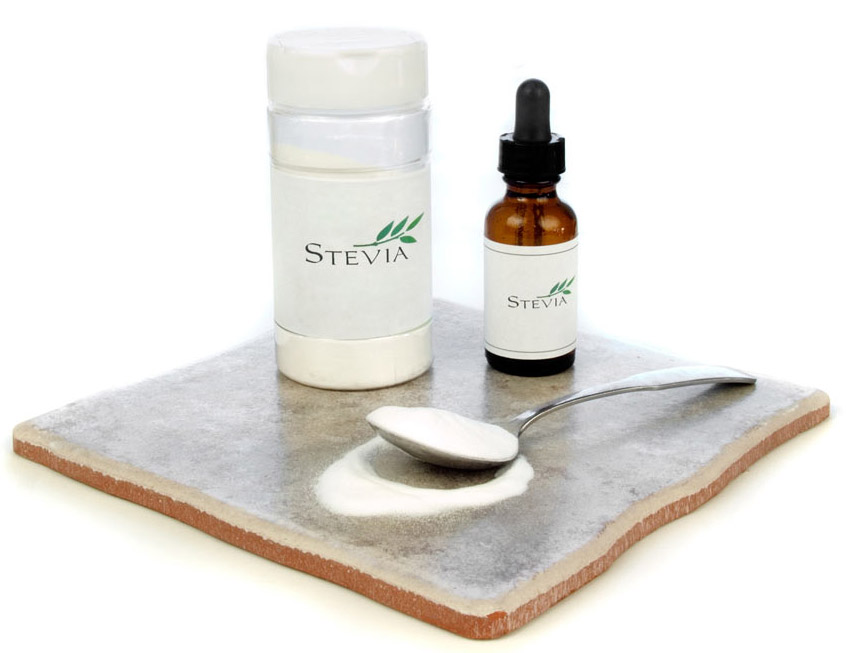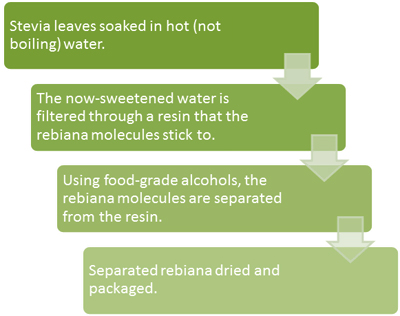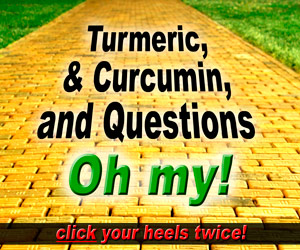Stevia FAQs

Is stevia a plant or a sweetener?
Actually, it's both. Stevia can refer to the natural, non-sugar sweeteners developed from the Stevia rebaudiana plant, its whole crude extracts, or the plant itself.(1, 8)
In general, stevia's steviol glycosides are what people in Europe and Asia refer to as stevia when talking about it as a sweetener. In the United States, stevia as a sweetener refers to one particular steviol compound, rebaudioside A.(3, 19)
Is stevia a plant or a sweetener?
There's a lot of debate, even amongst experts, over the correct pronunciation of this sweet herb. Although the online Merriam-Webster dictionary pronounces it like the English version of the last name of the botanist it was named after (P.J. Esteve), we believe the correct version is STEH-vee-ah. Dr. Robert J. Joly, professor and head of the Department of Horticulture and Landscape Architecture at Purdue University in Indiana, agrees.
Is stevia as sweet as sugar?
Stevia's main sweet steviol compounds are actually sweeter than sugar. Due to regulatory limits, the amount that can be used in different products doesn't quite equal the amount of sugar typically used - or even enough to have the equivalent sweetening effect.(19)
The FDA's regulations about which stevia compound can be used for sweetening food and beverages may actually have a taste benefit. Rebaudioside A is the 2nd most prevalent steviol compound in stevia, and the only one the FDA has granted GRAS status too. Stevioside, the primary steviol compound in stevia, is actually less sweet than rebiana, and has a more noticeable bitter and/or licorice-like aftertaste. Rebiana's aftertaste is reportedly only noticeable at high concentrations (which are, as mentioned, limited by regulation).(19)
I heard stevia is approved for use in the United States. Is that true?
You may see websites that claim that stevia has been approved by the FDA as a safe sweetener. However, that's not exactly accurate. Only one compound from the Stevia rebaudiana plant has been granted GRAS status by the FDA - rebaudioside-A (also known as rebiana). The approved stevia compound rebiana is one of two primary steviol glycoside components that make stevia sweet (the other is stevioside).(3, 4, 16)
Is stevia only available as a supplement?
Yes and no. Only one stevia compound (rebiana) is approved as a food additive in the United States. Whole stevia and other stevia compounds are only available as a supplement or dried leaves.(15)
Many companies are marketing the formulations using stevia's rebiana compound, in combination with other naturally-derived substances, for sweeteners and in drinks (such as Coca Cola/Cargill's Truvia™, PepsiCo's SoBe Life Water™). Whole stevia extract and its most abundant sweetening compound stevioside are approved for sale in the U.S. as dietary supplements only.(3, 5)
In the European Union, purified extracts of stevia that contain 95% rebiana OR stevioside (collectively, steviol compounds) are approved as table-top sweeteners and sweeteners in foods and beverages. The remaining 5% can contain other compounds from stevia. European food companies have launched products (such as ice cream, flavored milk, and candy) that contain steviol compounds as sweetening agents.(19)
Can I cook with stevia?
Stevia remains stable at very high temperatures, so you can use it in a wide variety of recipes. Replacing sugar with stevia in some baking recipes may cause unexpected results, especially with recipes containing yeast or those requiring caramelization.(19, 58)
How is rebiana purified from stevia?
In order for commercial food manufacturers to use stevia's rebiana compound, it must be safely extracted from stevia leaves. The process must meet current Good Manufacturing Practices and purity levels.(80)
According to industry experts, rebiana is extracted as follows:(80)

How is stevia sold?
In the U.S., crude/whole stevia is sold as a dietary supplement in different forms, such as:
- Liquid extract
- Powder
- Whole-leaf form
Stevia is also sold as a plant.
New sweeteners derived from stevia (such as PureVia® and Truvia™) are in U.S. markets now. These contain the FDA-approved stevia compound rebaudioside A (also known as rebiana). Food and beverages made with rebiana, as well as table-top sweeteners, are now widely available in stores and online.(3)
I'm diabetic. Can I use stevia?
Fortunately, stevia sweeteners do not raise blood glucose levels like most natural sugars do. Some studies indicate that stevia compounds may even stimulate the release of insulin and normalize blood sugar levels in diabetics.(16)
However, if you take medications (such as insulin or Avandia®) for diabetes, consuming stevia sweeteners could lower your glucose levels too much. Experts suggest your doctor may even need to adjust your medication. As always, check with your doctor before adding stevia or before stopping and changing any medical treatment plan.(22)
Are there any benefits of using stevia?
Although the evidence isn't definitive, some research suggests that stevia may be good for your health. Stevia compounds not produce the fluctuations in blood glucose that sugar does. They may also help stimulate the release of insulin and lower blood pressure. Lab studies show that stevia and its compounds have antiviral, antibacterial, and anti-tumor properties.(6, 16)
Does stevia have any side effects that I need to be concerned with?
There have been conflicting reports about stevia's impact on blood pressure and blood glucose levels, and there may be some additive effects to prescription medicines for high blood pressure.(16)
One recent study which measured the effects of stevia consumption in mice found increased estrogen (in females), testosterone and libido (in males), and decreased testicle size. However, there was no change in fertility rates.(81)



